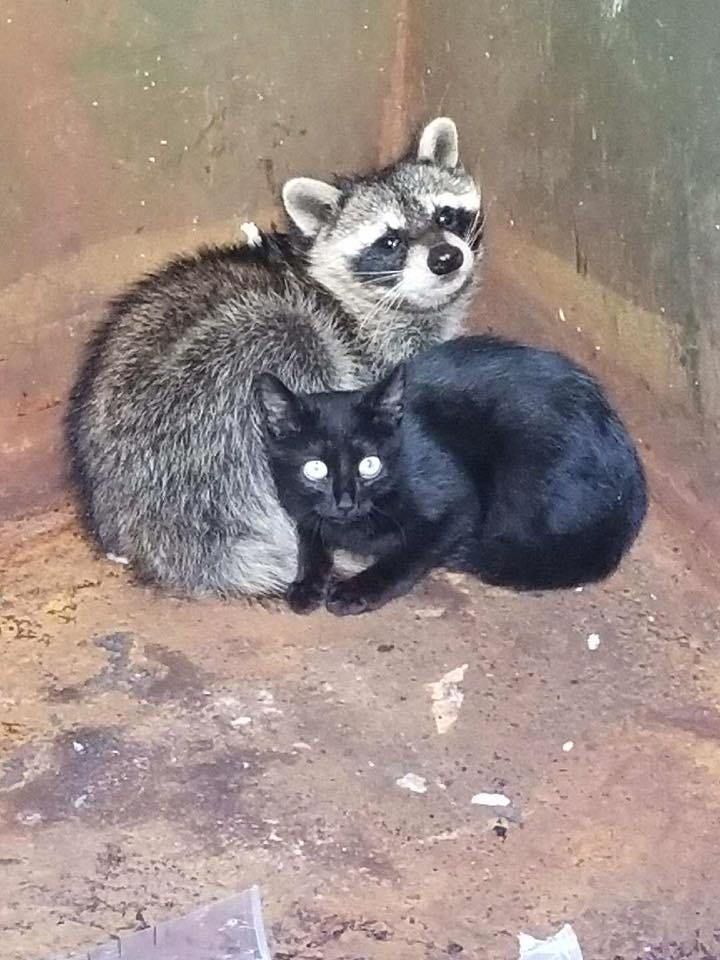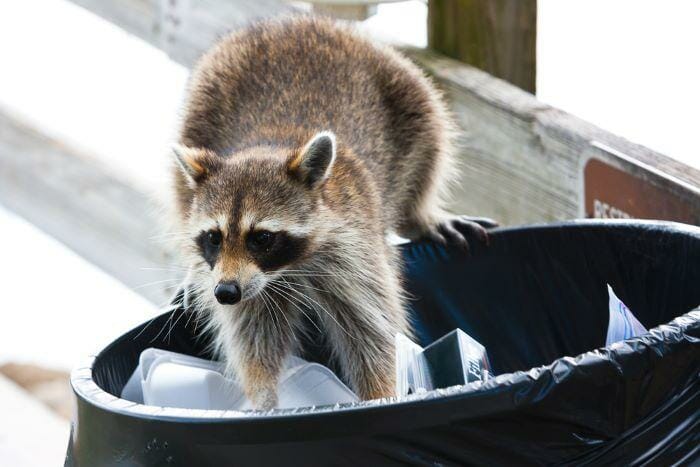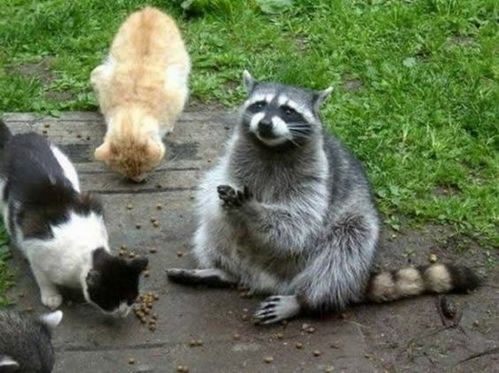The sight of raccoons around your home is bound to send chills up your spine.
No doubt, these special rodents bring trouble to homeowners. For one, they leave food leftovers after scouring the garage bins all night long.
If you don’t seal the bins, shut and keep all pet food inside the home, be ready for a thorough cleanup job.
Raccoons also find clever ways to enter your home’s attic in search of safety.
If these animals come into your house, they will eat your food, fight with your pets, damage your house, and leave dropping all over the place.
For cat parents, the constant worry of having raccoons transmit diseases to their beloved pets never leaves them.
One such disease is distemper. This deadly virus is common with raccoons but household pets such as cats and dogs suffer from it as well.
The question is whether a raccoon can actually give cat distemper.
If you are wondering about the right answer to this question, we have just the answer for you.
Can Cats Get Distemper From Raccoons?

Cat distemper, also called feline distemper or feline panleukopenia is a viral disease affecting cats of all stages.
It is essentially caused by the feline parvovirus and affects the bone marrow by suppressing the production of white blood cells.
These cells are responsible for fighting infections. Without them, the cat will have a weakened immune system and will spread the virus easily.
Feline distemper mostly affects unvaccinated cats and kittens and is highly fatal if not treated early enough.
Cats mainly get distemper when they are exposed to urine, blood, nasal secretions, and feces from an infected cat.
They can also become sick if bitten by a flea from a cat carrying the virus or from human hands/clothing from an infected kitty.
However, our feline friends can also contact distemper from raccoons.
Distemper is especially common with coons. Most precisely, it is the second leading cause of death for the poor critters.
Almost every year, the disease wipes out large populations of raccoons in the United States and around the world. Juvenile coons are the most prone to the virus.
A raccoon can get infected from coming in contact with bodily fluids and waste from infected animals including cats, dogs, skunks, coyotes, and other raccoons. In return, they can also infect other animals.
Just recently, the Pacific Grove police issued a warning on raccoon distemper claiming that it can spill over to both cats and dogs.
“Although raccoons don’t pose any health to humans, they can make your companion animals sick from distemper. To keep your dogs and cats from coming in contact with raccoon distemper, your best bet is to have them vaccinated. Also, feed them indoors and restrain them from roaming outside off-leash. Finally, refrain from feeding raccoons and wildlife in general. If you notice any symptoms of distemper in your cats, be sure to contact your vet immediately.” The report read.
What Diseases Can Cats Get From Raccoons?

Distemper is not the only disease your adorable furball can catch from a raccoon.
Others include the following:
A. Rabies
Raccoons and rabies are like two peas in a pod. These animals are popular for being used as vectors for the deadly disease.
Rabies is a result of the rhabdo virus which is a special bullet-shaped virus.
It can spread through bites and scratches from rabid raccoons.
Rabies affects the central nervous system. Without prompt treatment, your cat will die from the virus.
B. Raccoon Disease
Raccoon disease, also known as Baylisacaris procyonis, is an intestinal nematode that causes neurological and ocular signs to an infected cat.
It is typically a species of roundworm that loves using a raccoon as a host. The wild animal is immune to the parasite but a cat, on the other hand, is not.
Felines can get the virus when they encounter raccoon eggs dropped through fecal matter.
The eggs make their way to the inside of the cat when she licks her paws after a walk around the yard.
Soon she will show certain symptoms such as lethargy, fever, loss of vision, pain, stupor, coma, enlarged liver, and death.
Treatment for Raccoon disease doesn’t exist but vets use heartworm meds to manage the pain and discomfort brought by the nematode.
Can Cats Get Distemper From Dogs?

Dogs, too, suffer from canine distemper – a disease that affects the respiratory system, nervous system, and GI tract.
It is caused by a paramyxovirus and has no cure. Most dogs don’t make it and those that do end up with permanent brain or nerve damage.
Fortunately, cats and dogs cannot transfer distemper to each other. Each case of distemper is different and only affects one party.
This is good news for parents with both furry animals and who suspect that one is suffering from distemper.
Both animals can infect raccoons, skunks, coyotes, and other wild animals but they cannot make each other sick.
Related Post: Can Cats Get Worms From Dogs?
Can Cats Get Distemper From Other Animals?
Raccoons are well-known for passing the feline distemper virus to your kitty but other animals carry the virus as well. These include skunks, foxes, mink, otters, fleas, flies, lions, and tigers.
Fleas are especially notorious for carrying the virus from one animal to another.
The rest of the wildlife is less likely to affect your kitty because they try to stay away from human habitats in the first place.
If you have an indoor pet, she’s less likely to come across coyote or fox droppings or urine and get distemper in return.
Still, if she happens to be exposed, she will definitely catch the disease and transmit it to other household cats.
Final Thoughts
If you have an outdoor cat, you should always be careful about which wild animals put up shop on your property.
Some animals such as raccoons pose a threat to cats. Not only can they fight your cat when they cross paths but the critters can also transmit the feline distemper virus to your pet.
Always vaccinate your pets and keep raccoons out of your home.
And speaking of keeping raccoons out of your home, here are tips that you may find useful, especially if you don’t want to interfere with feral cats: How to Get Rid Of Raccoons but Not Feral Cats
Here is another post you may be interested in: Do Cat Raccoon Mixes Exist?

Hi! I am Eleanor Price. I started this website after my cat, Louie, almost died from a case of botulism (a type of food poisoning often caused by bacteria that grow on food items). Turned out that my cat’s diet was the problem. I have made it my duty to provide the best information and recommendations about everything cat lovers need to know about their felines’ health and wellbeing. My goal is to find the most informative content on anything feline-related and share it with fellow hardworking kitty lovers.

